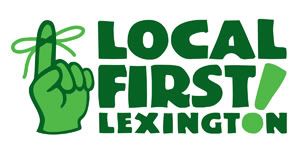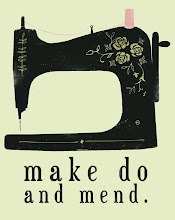So... I'm deep into reading this book:
...and wow. I certainly feel like I am going to have a lot to say about it, in the immediate and probably for some time to come, as ideas and thoughts percolate and bubble to the surface. This book touches a lot of chords in me, and my first reaction when opening it up and doing some cherry-picking was "YEAH! Right on!" Her basic premise is sound: contemporary, consumerist society (what she calls an "extractive economy") is destroying the planet and bankrupting our values. The antidote she proposes is achieveing personal, social, and political transformation by unplugging from mainstream society and living more purposeful, independent and creative lives that center on home and community. It's hardly a new idea - people have been "dropping out" of mainstream society and forming alternative communities for centuries, and back-to-the-land movements have come and gone - most recently, in the US, in the late 1960s and early 1970s. But with climate change, environmental degradation, and social unrest becoming all the while more extreme, the feeling is strong that we're finally hurtling towards some sort of end stage showdown. Increasingly, people are coming to believe that current global society is failing them and there is again a movement toward greater self-sufficiency and the consolidation of values felt to be ignored by mainstream culture. People are engaging in all sorts of small-scale agriculture, even in cities; homeschooling is no longer the province of the religious minorities; and sustainability is the yardstick by which all is judged.
Like Hayes, I firmly believe one of our greatest hopes for exerting enough oppositional force to reverse the swing of the pendulum is to decouple ourselves from mass culture and seek out lives of purpose and intent. There are many valid ways to do that, but I, also, happen to find the DIY homesteading/homeschooling/homemaking model particularly resonant. Hayes' book is largely based on interviews she conducted with 20 individuals and families who are pursuing a life somewhere along the spectrum of self-sufficiency, but are commonly linked by the emphasis they place on consuming (and usually growing) local, organic food; on rejecting conventional employment and cultural expectations associated with wage earning; on choosing housing and transportation arrangements that allow them to remain free of mortgage and loan debt; and on seeking alternative education for their children. I'm still rah-rah at this point.
Then I notice something that bothers me. After going on at some length about the evils of the "extractive economy" and the necessity for creating lives and livelihoods that distance themselves from it, Hayes then reveals that some of the people she interviewed are accepting or have accepted financial assistance from relatives. It's unclear whether or not those relatives acquired their assets according to the same values, but the implication is that benefitting from the extractive economy, provided that you do it by proxy, is an acceptable arrangement.
What really threw me for a loop, though, was the section dealing with health insurance (or the lack thereof). Although mentioning that a few of her interviewees had traditional health insurance, Hayes quickly blows past this detail in favor of talking at great length about how the others are living without (and doing just fine, thank you very much). For many, this is as much a conscientious objection to the current health care situation in the US, and while I think that's an interesting and certainly valid point of view (I don't like the health care situation any better myself), I was really turned off by the ensuing preachiness. We get told that the real way to insure your health, basically, is to eat organic food and lead a stress-free life. And while I believe that is of great value, I get the feeling that none of these people (the author included) have ever really been sick. My husband and I both have chronic health issues that require expensive supplies and medications, and all the grass fed beef on the planet won't change that. Without health insurance, our expenses would run to thousands of dollars a month, which there is no way we could afford. I get where they're coming from, it just seems really naive. I was also really bothered by the fact that some of these people think it's OK to choose not not work and still take advantage of social programs like Medicaid.
I'm also uncomfortably aware of the fact that Radical Homemakers reinforces the perception of sustainable living as mainly the preoccupation of the monetarily or educationally well-advantaged. Although many are not currently wealthy by conventional standards, Hayes' interviewees all seem to come from a relatively privileged background. But across the country and around the world, urban farms and gardens are springing up in low-income and inner city areas, bringing pride, good nutrition, and food security to thousands of people in an often overlooked example of ecological devotion. I think often about how "voluntary simplicity" movements presuppose that living with less is a choice and not a forced circumstance. There seems to be a minimum level of material and financial comfort necessary for living with less to be empowering and not oppressive. I'd be interested in exploring where that line lies and how people on the lower end of the socioeconomic spectrum approach the idea of sustainable living. I think this aspect has to be acknowledged for the movement to be truly impactful.
So my rah-rah is a bit more muted now, but I'm sure I'll revisit this topic and this book time and again.
And I ran across this article by Stanley Fish in the New York Times' Opinionator. Titled "Race to the Top of What? Obama On Education," it addresses almost exactly the issues I blogged about here.
22 February 2011
Subscribe to:
Post Comments (Atom)














No comments:
Post a Comment